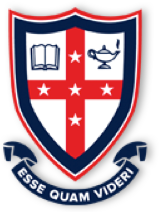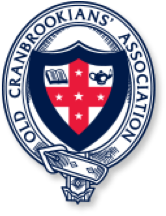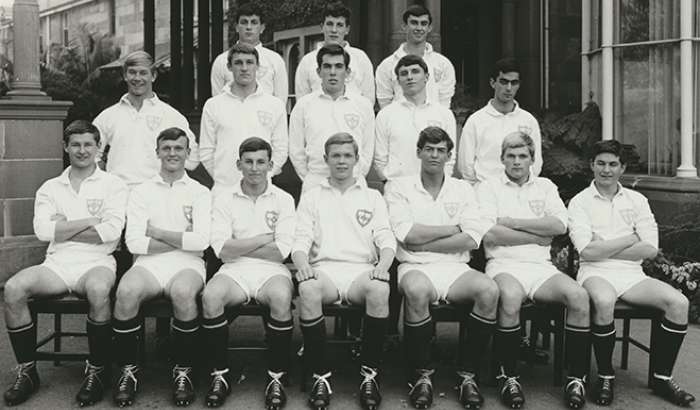Our "Magnificent Three"
In 1971, three Wallabies players lived out their Cranbrook School motto, Esse Quam Videri, when they sacrificed their international sporting careers by refusing to play against South Africa’s racially segregated team, the Springboks. Condemned by the patriotic clubmen who ran rugby union at the time as “a disgrace to their country”, our 'magnificent three' put themselves on the line to uphold Cranbrook’s values of integrity, action, team work and global responsibility.1
Joining the Wallabies in the 1960s, Anthony Abrahams (OC 1962), Paul Darveniza (OC 1962) and Barry McDonald (OC 1957) navigated their international sporting careers during a period when the issue of contact with the new republic of South Africa loomed large.2 In 1968 the Basil D'Oliveira Affair, in which a mixed-race South African player from England’s test cricket team risked exclusion, brought public attention to sport as the soft underbelly of apartheid, and at the same time, the UN General Assembly urged boycotts against South Africa’s racially segregated sports teams.3
In 1969 Abrahams, Darveniza and McDonald experienced this 'soft underbelly' first hand when they were selected for the Wallabies’ South Africa tour. While playing on the tour, the players were shocked when they went up for a ball in a lineout and saw in the background the police controlling the black audience members with dogs and quite often truncheons.4
Abrahams took a stand against this discrimination by playing only 10 out of 26 matches – instead of participating in the remaining games, the old Cranbrookian risked government surveillance by meeting with the Black Sash anti-apartheid group, and spoke at the Cape Town Law Society against a law that prevented a defendant from using evidence that compromised the security of the state.5
Two years later, when the Springboks were due to tour Australia, Abrahams, Darveniza and McDonald joined four other players in opposing the tour and making themselves unavailable for selection.6 While the tour went ahead, their public stand helped to spur on protests throughout the country.7 The Springboks were denied transport and accommodation, and their sleep and play were disrupted by whistles, clickers and smoke bombs.8 In Queensland, the Premier declared a state of emergency.9
According to Dennis Brutus, the President of the South African Non-Racial Olympic Committee at that time, boycotting sport made a significant “crack in the whole apartheid structure”, because it demonstrated international rejection.10 Cranbrook’s 'magnificent three' went against the tide of popular opinion, which was 85% in favour of the Springboks tour, to help form that crack in the structure.11 Following the 1971 boycott, the Australian cricket team cancelled its own tour of South Africa and in 1977 the Whitlam Government suspended all sporting contact with the country.
In 2001, our 'magnificent three' attended a function in their honour in the NSW Parliament at which a message of appreciation from Nelson Mandela was read by the South African High Commissioner.12 Looking back in 2011, Abrahams reflected: “You didn’t really have any choice. You’re a complete human being first and a personality second. The issues that confronted us didn't stop at the turnstiles of a rugby ground."13 This statement reflects the core value of integrity that lies at the heart of Cranbrook’s motto, for Abrahams did indeed have a choice and he chose to contribute to the betterment of society over the highest sporting accolades.14
- 1. Bandini Vijay Miss Chhichhia, "Sporting Boycotts: Legal Intervention in the Sporting Arena", Social Justice, No. 8 (2008): 5.
- 2. Anthony (Tony) Morris Frederick ABRAHAMS, BA, LLB (Syd) was at Cranbrook from 1951–62; Paul DARVENIZA, MB BS (Syd) was at Cranbrook from 1959–62; and Barry Stuart McDONALD was at Cranbrook from 1956–57.
- 3. On the Basil D’Oliveira Affair see Guy Fraser-Sampson, Cricket at the Crossroads: Class, Colour and Controversy from 1967 to 1977 (London: Elliott & Thompson, 2011); Peter Oborne, Basil D'Oliveira: Cricket and Controversy (London: Time Warner, 2005); Jack Williams, Cricket and Race (Oxford: Berg, 2001). “Soft underbelly” is a term used in Peter Utting, "Lessons from the Movements of Australia and New Zealand", in Celebrating the International Anti-Apartheid Movement in South Africa’s Freedom Struggle: Lessons for Today (University of KwaZulu-Natal, International Convention Centre, Durban, 2004), 3.
- 4. Daniel Lane, "Rugby's Magnificent Seven Turned Their Backs on Ugly Face of Apartheid", The Sydney Morning Herald, 21 August 2011.
- 5. "Tony Abrahams", Australian Rugby, http://www.aru.com.au/wallabies/TheTeam/HistoricalWallabiesPlayerProfile... Lane, op. cit.
- 6. The other four players were Jim Boyce, Terry Forman, James Roxburgh and Bruce Taafe.
- 7. On the protests, see Larry Writer, Pitched Battle: In the Frontline of the 1971 (Melbourne, Vic: Scribe).
- 8. Ibid.
- 9. Ibid.
- 10. Denis Brutus, 12 May 1970, quoted in ibid., 920.
- 11. "Tony Abrahams"; "Paul Darveniza," Australian Rugby, http://www.aru.com.au/wallabies/TheTeam/HistoricalWallabiesPlayerProfile....
- 12. "Tony Abrahams"; "Paul Darveniza," Australian Rugby, http://www.aru.com.au/wallabies/TheTeam/HistoricalWallabiesPlayerProfile....
- 13. Lane, op. cit.
- 14. Partly in recognition of his actions, Abrahams was awarded Old Cranbrookian of the Year in 2015: Old Cranbrookians' Association, "Anthony Abrahams (1962), OC of the Year 2015", http://oca.org.au/ocs-of-the-year/anthony-abrahams-1962-oc-year-2015.


